A Guide to the Mediterranean Diet
This post contains links to affiliate websites, such as Amazon, and we receive an affiliate commission for any purchases made by you using these links. We appreciate your support!
Wholesome, filling, healthy, flavorful, & versatile – the Mediterranean diet is not just a way of cooking – it‘s a way of living!
If you’ve been on my blog more than once, you’ll know I am a big fan of the Mediterranean diet. And I’m not the only one, it has been rated the best overall diet for six years in a row now.
This way of cooking just feels natural to me, and that’s why you’ll find so many recipes on my site that fall into the guidelines of the Mediterranean diet.
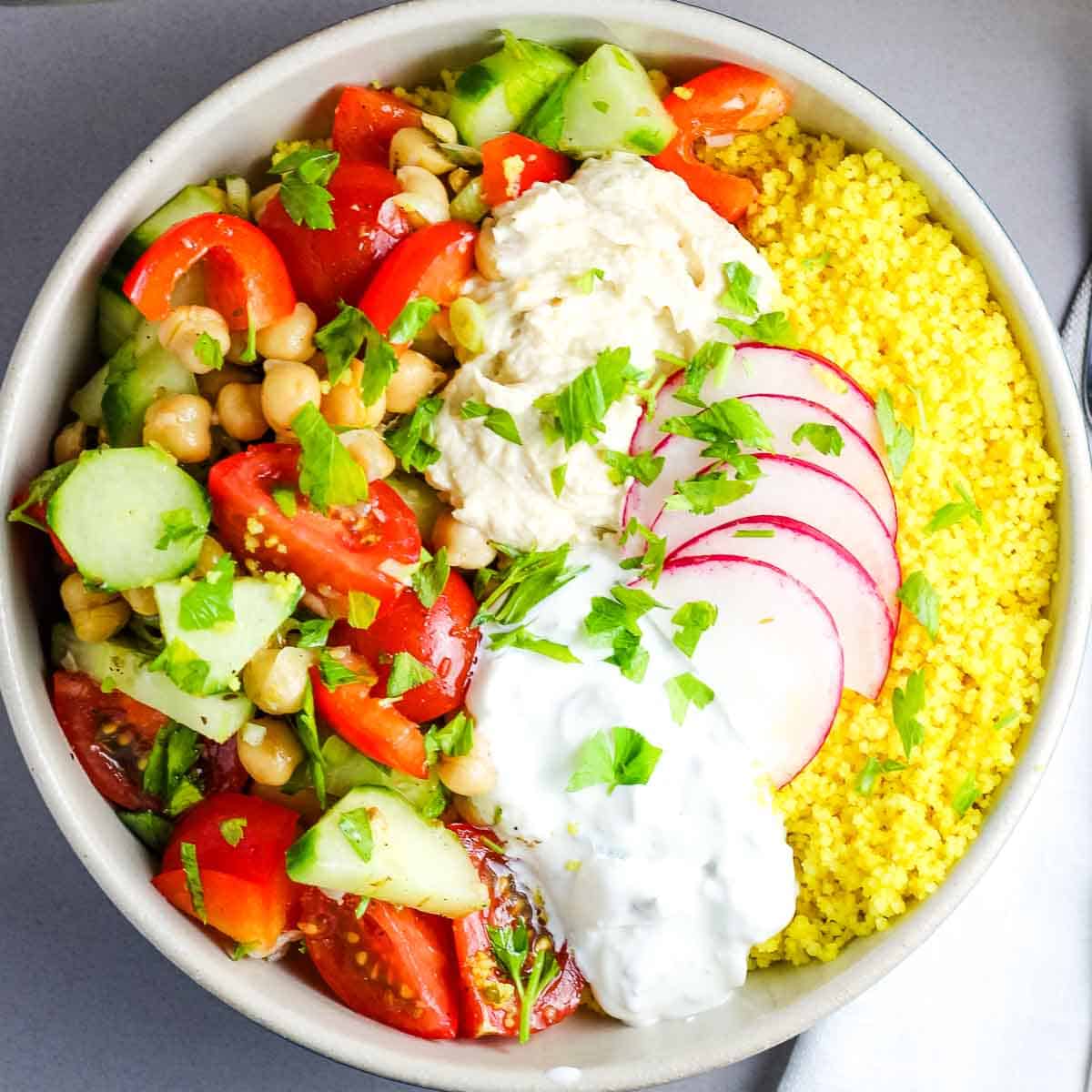
I thought you hated “diets”!
Before I get too far into this, let me just define “diet” in the context of this post, because there are many negative connotations to the term.
Basically, “diet” for our purposes here, just means “way of eating”. No food is off-limits here, and the end goal is to be healthier, not thinner. We are not restricting ourselves, rather we’re enjoying all the foods we love!
This diet is, in no way, a “diet” where you have to stick to certain foods with a goal to lose weight. The Mediterranean diet is based in foods available in the countries bordering the Mediterranean Sea, and it just means eating in the way people in the Mediterranean region traditionally ate.
The reasoning is that the people in that region have historically lived longer and had lower rates of chronic illness. It’s believed by researchers that their diet plays a big part in that.
The Mediterranean Diet
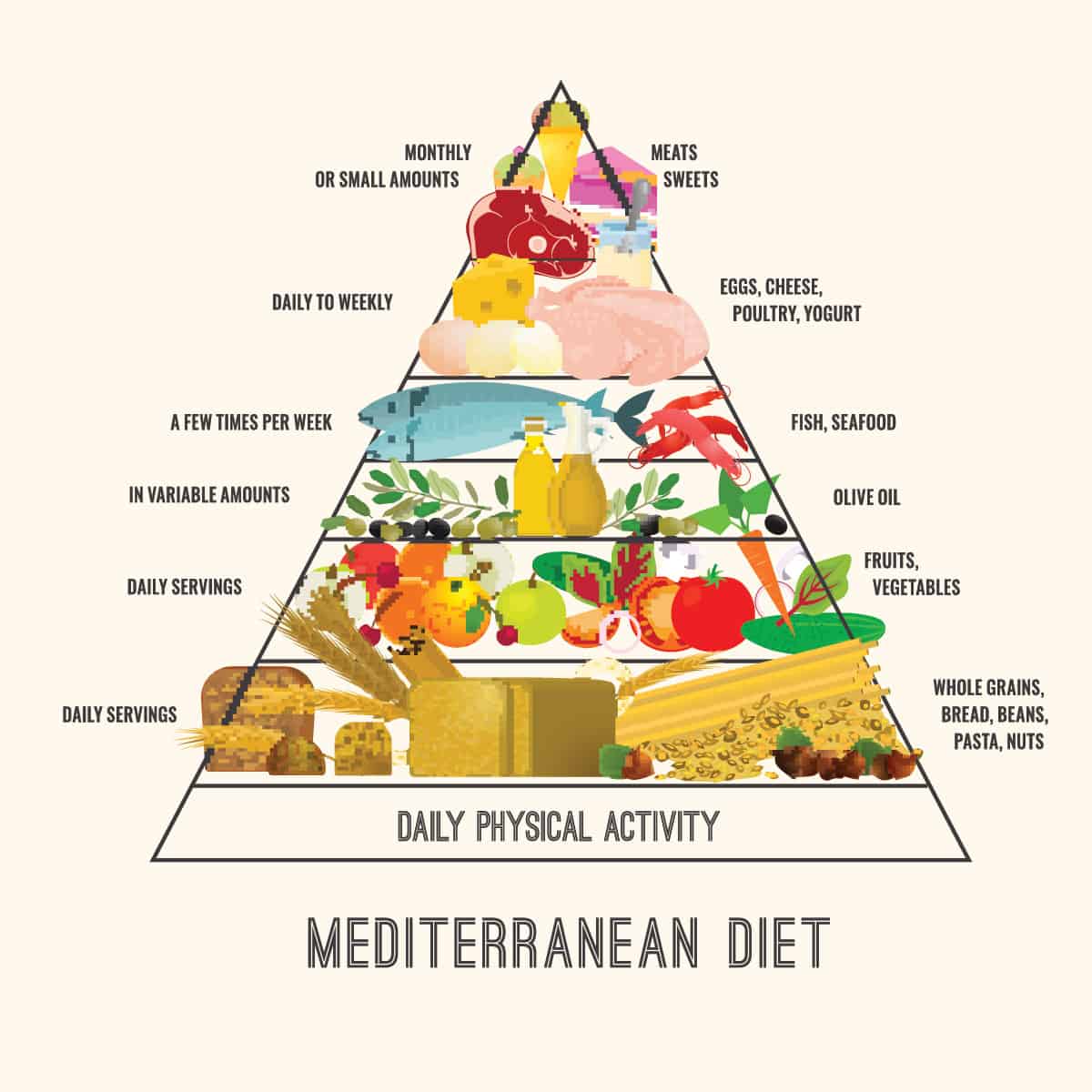
The Mediterranean diet is a simple way of eating that emphasizes fresh and whole foods, like fruits, legumes, vegetables, and whole grains. While it’s not a vegetarian diet, It doesn’t include too much meat and processed food like Western diets typically do.
That being said, there are no concrete rules to “following” the Mediterranean diet, but there are certain guidelines that you can follow to eat the Mediterranean way.
- An abundance of plant foods that are minimally processed, seasonally fresh, and farmed locally, such as fruits, vegetables, whole grains, nuts, and legumes.
- Olive oil as the primary fat source, even for baking – like in these raspberry muffins and blueberry banana muffins.
- Moderate consumption of cheese and yogurt.
- Moderate consumption of fish and poultry a few times each week.
- Red meat and sweets are consumed infrequently and in small quantities.
Foods to Consume
According to studies on the Mediterranean diet, the great health benefits come not from the specific foods included, but from the overall dietary eating pattern.
You can adhere to these patterns by following the guidelines above, but there is no reason to feel restricted strictly to Mediterranean flavors and ingredients!
We eat a variety of cuisines, from Asian foods to American comfort classics, all the while staying in line with the proportions of the Mediterranean diet.
Here are some of the foods that form the bulk of the Mediterranean diet.
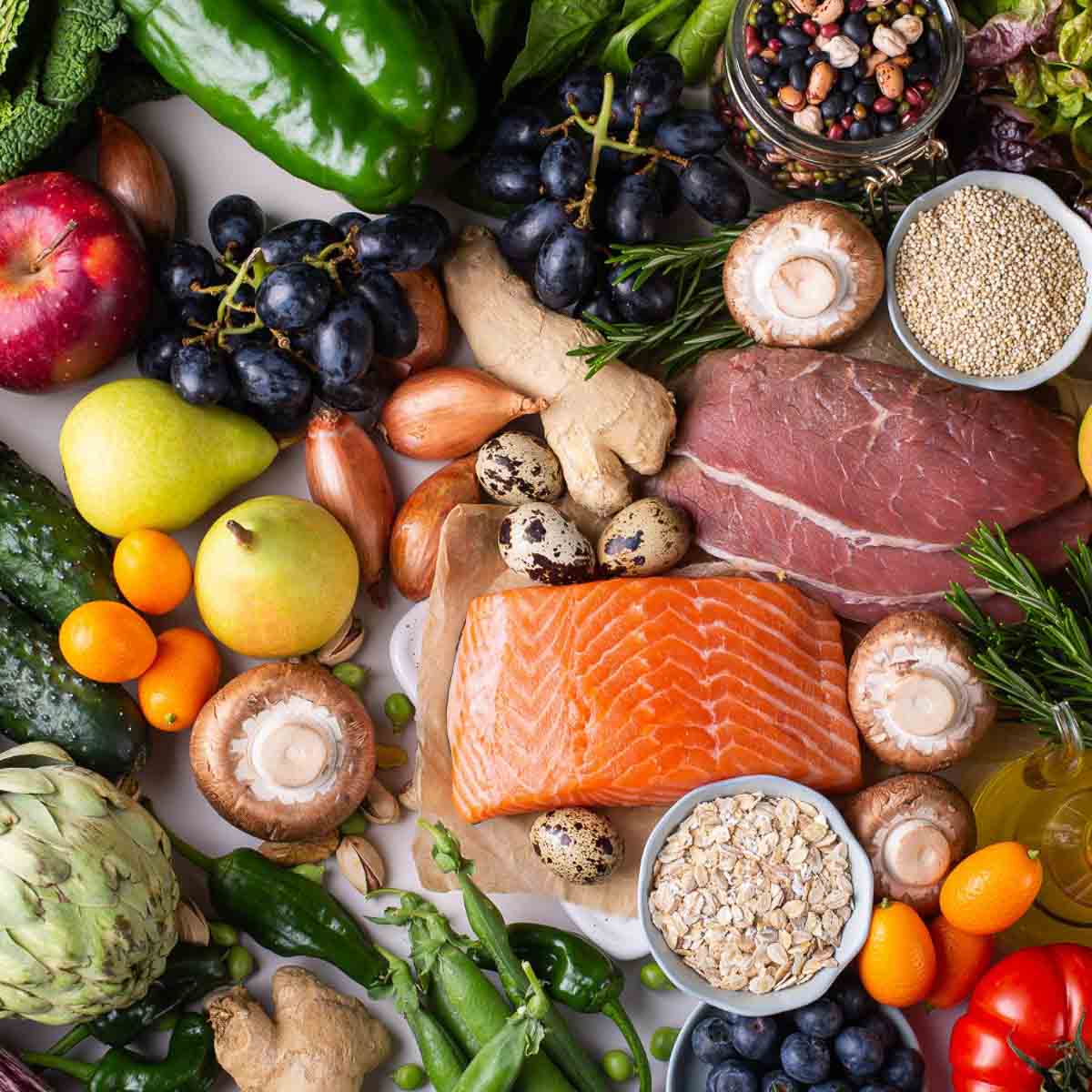
Vegetables
Vegetables should be included at every meal in a Mediterranean diet, with some models recommending a minimum of six servings per day.

Vegetables found in the Mediterranean diet include: pumpkin, radishes, spinach, arugula, beets, peas, peppers, potatoes, sweet potatoes, turnips, broccoli, Brussels sprouts, cabbage, carrots, celery, artichokes, zucchini, collard greens, cucumbers, eggplant, fennel, kale, leeks, lettuce, mushrooms, onions (red, sweet, white), and more.
Fresh fruits
Another staple of the Mediterranean diet, whole fruits are considered nature’s candy in the Mediterranean diet.
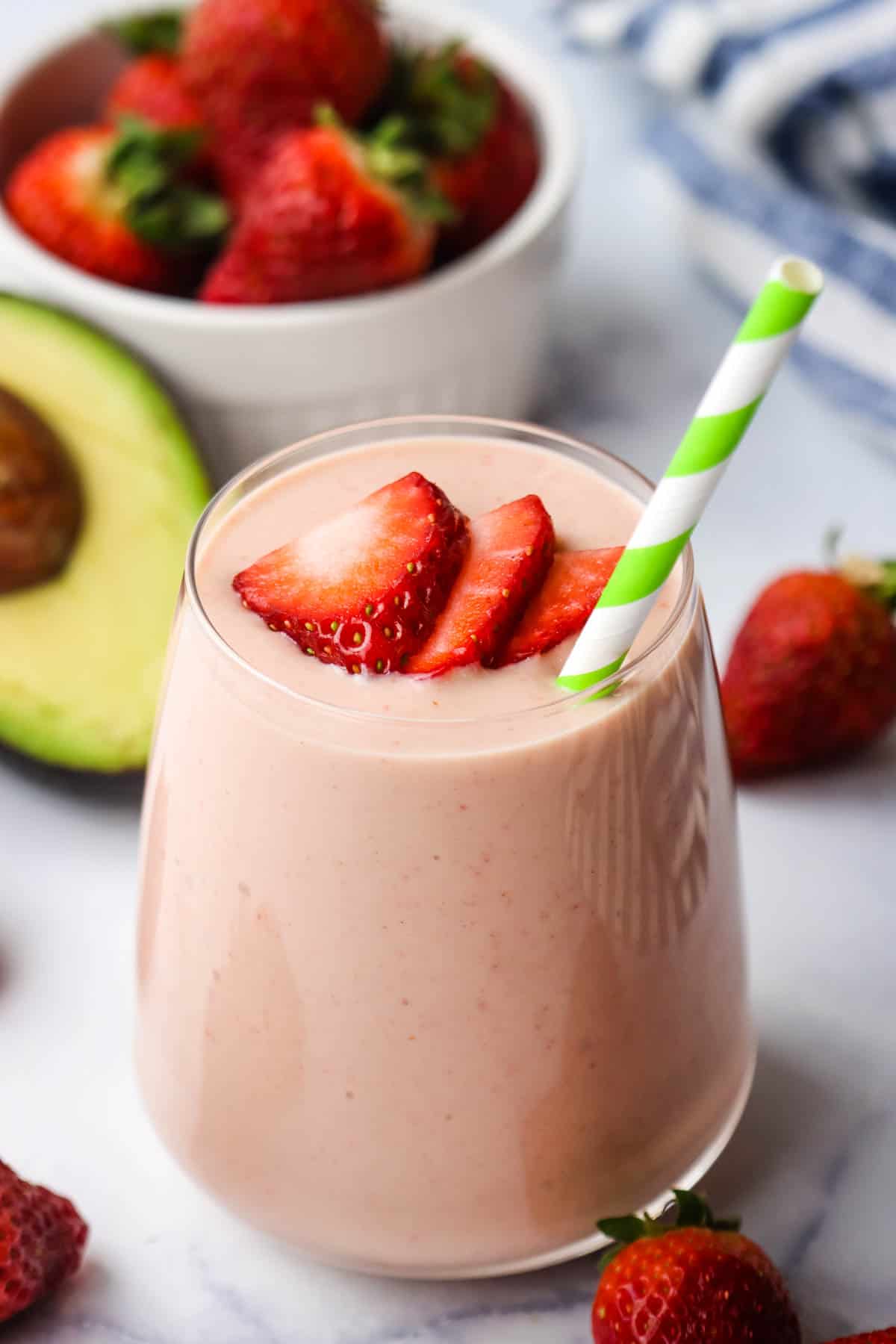
Fruits found in the Mediterranean diet include apples, apricots, avocados, grapefruits, grapes, pomegranates, cherries, figs, strawberries, tangerines, melons, nectarines, olives, oranges, peaches, clementines, dates, pears, and more.
Fats
Plant-based fats, such as extra virgin olive oil, avocados, nuts, and seeds, include omega-3 fatty acids and antioxidants.
As an integral component of the Mediterranean diet, extra virgin olive oil is of particular importance and has been widely researched for its health-promoting qualities.
Protein
The Mediterranean diet provides moderate amounts of marine and animal-based protein, in addition to the plant-based proteins found in legumes, whole grains, and vegetables.
Fatty fish such as salmon, trout, albacore tuna, Atlantic herring, Atlantic mackerel, anchovies, sardines, and even mussels are high in omega-3s and lean protein and are included in the Mediterranean diet.
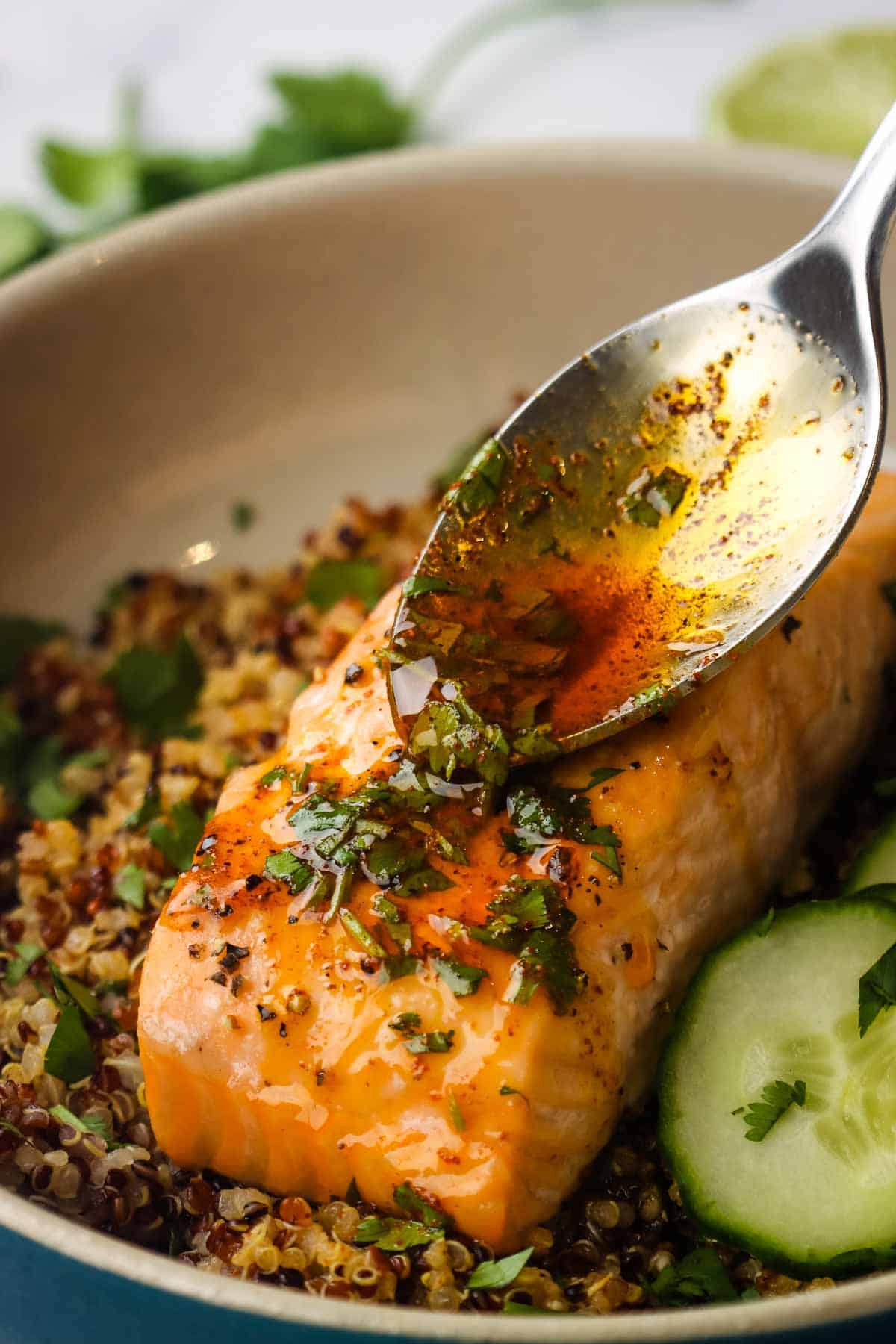
In addition to fatty fish, the Mediterranean diet includes moderate amounts of eggs and lean poultry, such as chicken.
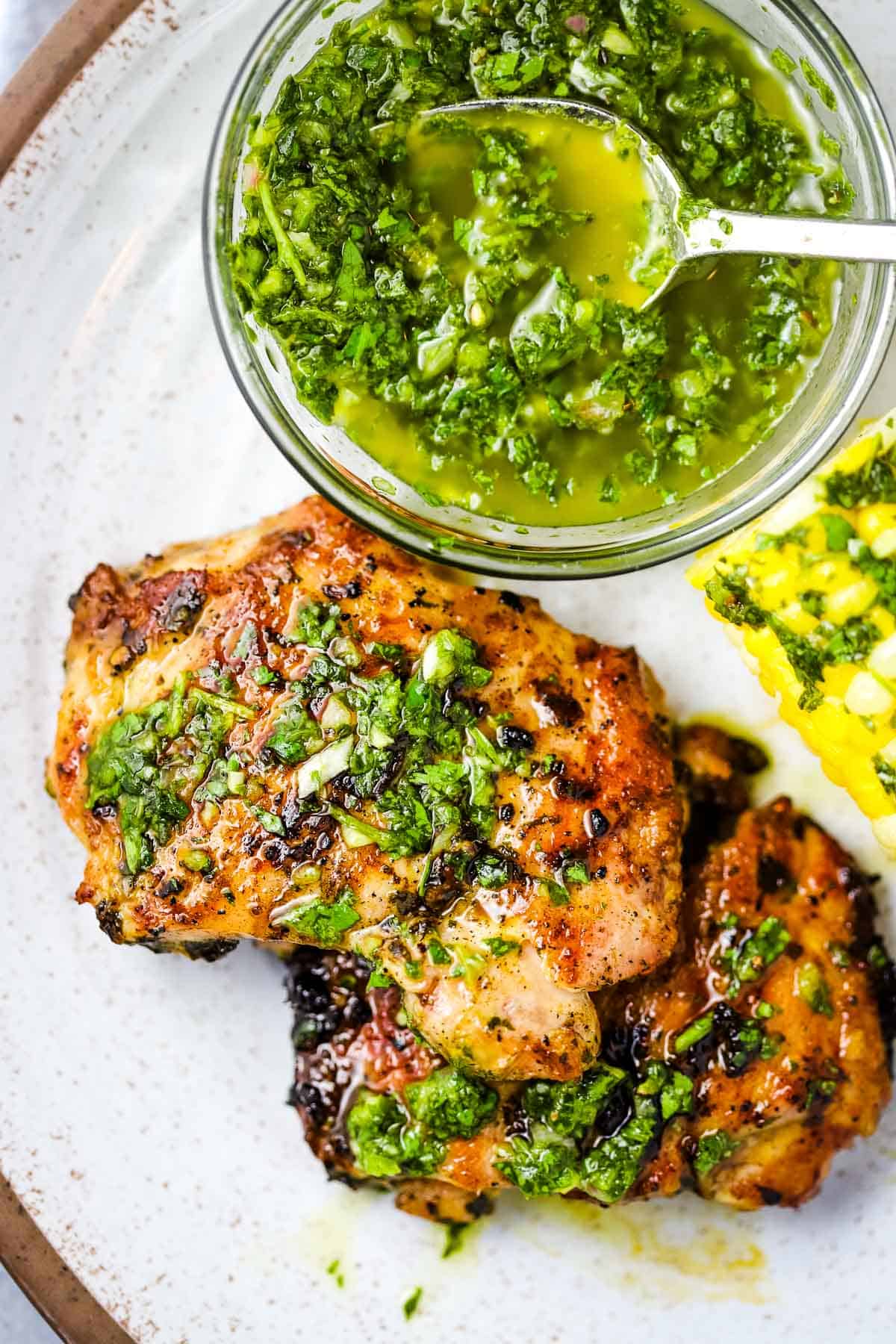
Legumes
Legumes are a low-to-no-fat, low-calorie plant-based protein source that should be included in every meal.
Some legumes that you could add in your diet include chickpeas, beans, pulses, peas, lentils, peanuts.
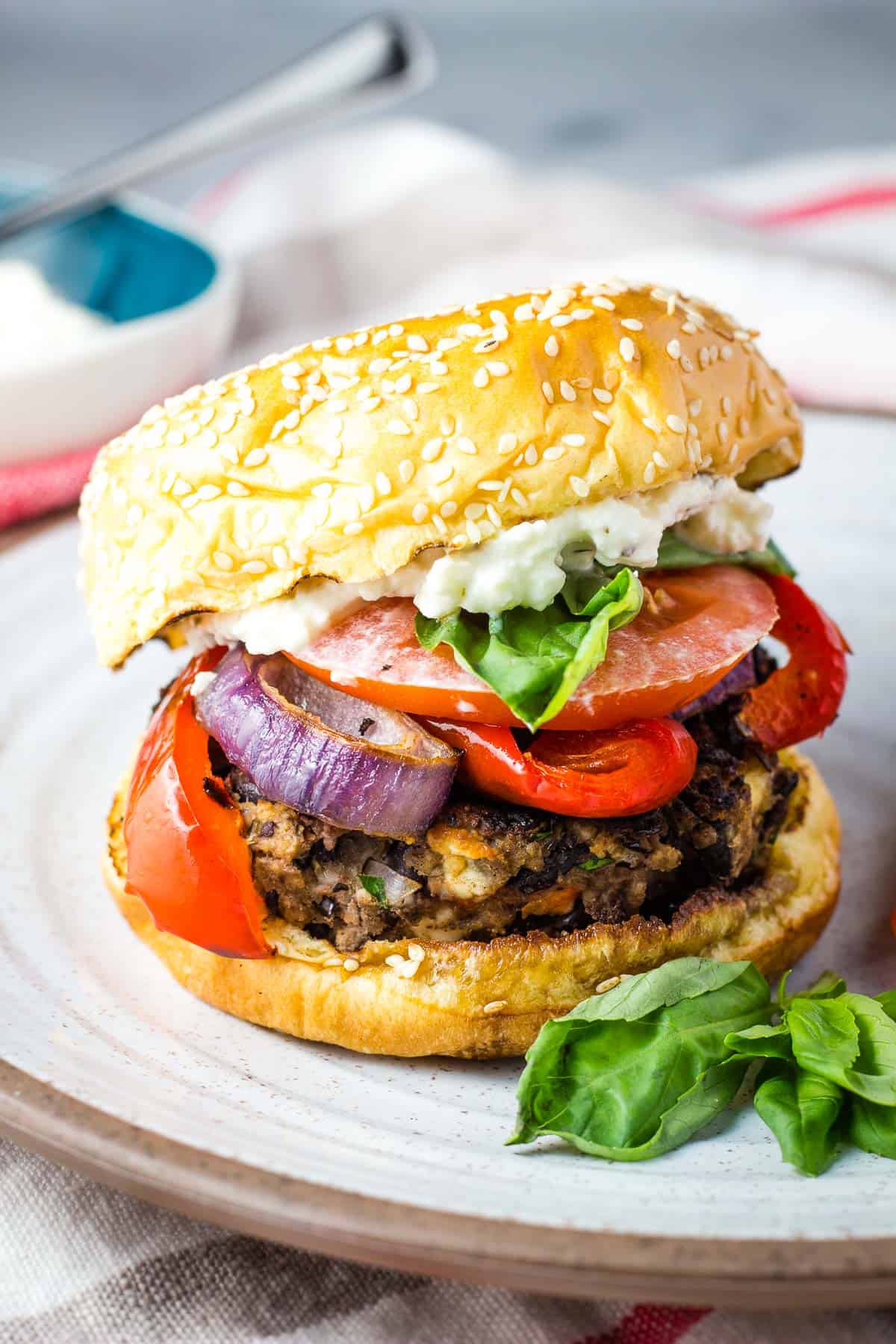
Whole grains
Whole grains, like legumes, are inexpensive yet high in nutritional value, offering a wonderful supply of fibre, B vitamins, iron, copper, zinc, magnesium, and antioxidant phytochemicals.
Whole grains commonly included in the Mediterranean diet include barley, buckwheat, bulgur, couscous, farro, millet, oats, quinoa, and brown and wild rice.

Eggs and Dairy
Eggs, cheese, yogurt are eaten occasionally throughout the week.

These foods are a good source of protein, calcium and other nutrients.
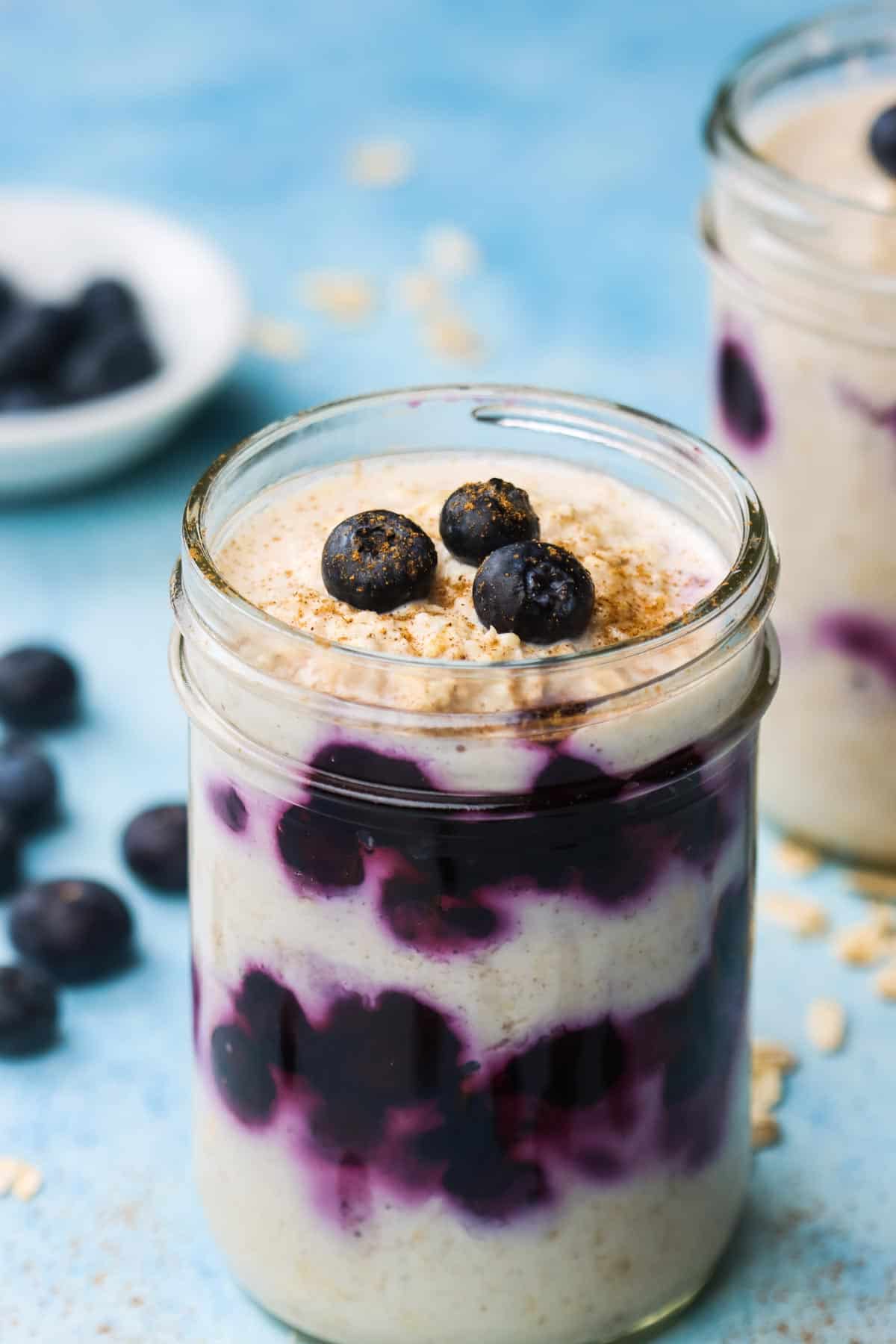
Foods to Limit
When following the Mediterranean diet, there are some processed foods you should limit.
Refined Sugar
Ok, this is a tough one for us and something we are actively working on. It’s no secret that we love our desserts around here. We almost always have something sweet to finish off a meal.
And for special occasions (and sometimes just because!) we really don’t hold back. This orange cake is a favorite of the whole family and is on the menu at so many of our celebrations!
And, well, we will probably never stop making and eating dessert because I truly believe that life is too short not to savor an occasional treat. We are strong believers in moderation, not elimination.
I will be working on some healthier options for desserts though, including a lighter take on our favorite orange cake. Stay tuned for that!
Many times lighter desserts can be just as satisfying, especially when they feature ripe seasonal fruit like these roasted peaches with pistachio crumble.

Many foods contain added sugar, but soda, sweets, ice cream, table sugar, syrup, and baked goods are the foods with particularly high sugar.
Increased inflammatory markers and obesity, cardiovascular disease, high blood pressure, diabetes, fatty liver disease, cancer, and cognitive decline have all been related to added sugars.
When you can, choose honey or dates to add small amounts of naturally occurring sweetness.
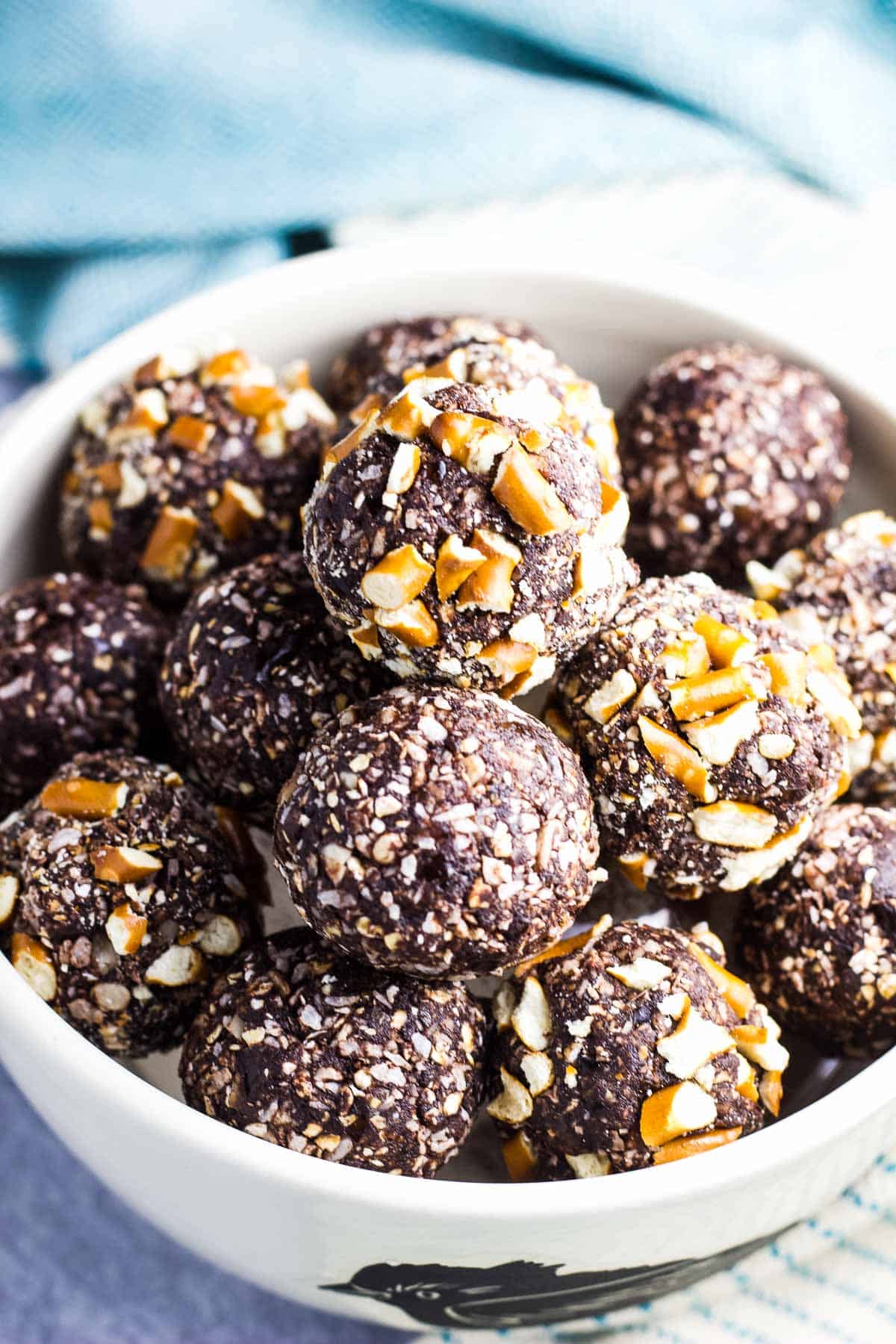
Trans fat
Trans fat, also known as trans fatty acids, is a type of unsaturated fat that is commonly found in processed foods. It is found in processed food, fried food, and margarine.
Processed meat & red meat
Red meat, which includes beef, pork, and lamb, is categorized as a type of meat that is high in saturated fats. In a traditional Mediterranean diet, these meats are usually consumed only on special occasions or holidays.
Studies have linked the consumption of red meat and processed meats (such as hot dogs, pepperoni, and some sandwich meats) to a higher risk of obesity, chronic diseases, and mortality. Processed meats, in particular, have been classified as a carcinogen by the World Health Organization.
As a result of these health concerns, it is recommended to limit the consumption of red meat and processed meats, and to opt for other protein sources such as fish, legumes, nuts, and seeds.
Benefits of the Mediterranean Diet
Numerous studies have shown that the Mediterranean diet is associated with a wide range of health benefits. Here are some of the key benefits:
- Reduced risk of heart disease: The Mediterranean diet is rich in heart-healthy nutrients such as fiber, antioxidants, and unsaturated fats, which have been shown to help reduce the risk of heart disease and stroke.
- Improved brain health: Studies have found that the Mediterranean diet may help reduce the risk of cognitive decline and dementia, and may also improve mood and mental health.
- Lower risk of certain cancers: The Mediterranean diet is high in antioxidants and other phytochemicals, which have been shown to have cancer-fighting properties.
- Better weight management: The Mediterranean diet is rich in fiber and other nutrients that can help you feel full and satisfied, which may make it easier to maintain a healthy weight.
- Improved blood sugar control: The Mediterranean diet emphasizes whole, minimally processed foods that are low in added sugars and refined carbohydrates, which can help improve blood sugar control and reduce the risk of type 2 diabetes.
Overall, the Mediterranean diet is a wholesome and sustainable way of eating that can provide a wide range of health benefits.
How to follow the Mediterranean Diet
If you’re interested in incorporating the Mediterranean diet into your lifestyle, here are some tips to get started gradually:
- Start with small changes: Begin by making small changes to your diet rather than completely overhauling it all at once. For example, swap out white bread for whole-grain bread or switch to olive oil instead of butter.
- Add more fruits and vegetables: Increase your intake of fruits and vegetables by incorporating them into each meal and snack.
- Experiment with new recipes: Try new recipes that incorporate Mediterranean ingredients and flavors, such as fresh herbs, olives, and citrus. It doesn’t have to be boring. You can try adding your own twist to different recipes by following the Mediterranean guidelines, like in these Tofu Summer Rolls, Halloumi Pasta, Tofu Wraps, Udon Stir Fry, and Vegetarian Burrito Bowls.
- Enjoy meals with others: The Mediterranean diet emphasizes the importance of enjoying meals with family and friends. Make an effort to eat meals with others and savor the experience.
- Start with a salad: One way to incorporate more vegetables to your meals could be to start with a serving of salad before your meal. Try this Ancient Grains Salad or Strawberry Goat Cheese Salad – you’ll love it!
Lifestyle Choices
Daily exercise
A Mediterranean lifestyle incorporates daily movement for optimal health. This does not have to mean hours of lifting weights at the gym. You can just start by trying to incorporate more natural exercise into your day. Walking places instead of driving, taking the stairs when it’s an option. Just being more active in general.
Eating with others
From a dietary standpoint, the company of others during meals enhances the enjoyment of food and can help naturally prevent overeating.
It’s also an opportunity to bond and build social connections, and is overall associated with greater happiness and a sense of wellbeing.
Let’s help each other eat and live better!
Remember, the Mediterranean diet is not a restrictive diet, but rather a lifestyle that emphasizes whole, minimally processed foods and a balanced approach to eating. Making small changes over time can help you incorporate this way of eating into your daily life in a sustainable way.
Food should never induce guilt, and perfection is never the goal! Take it one day at a time, little changes can make a big difference.
And don’t hesitate to reach out if you have questions or need some support!


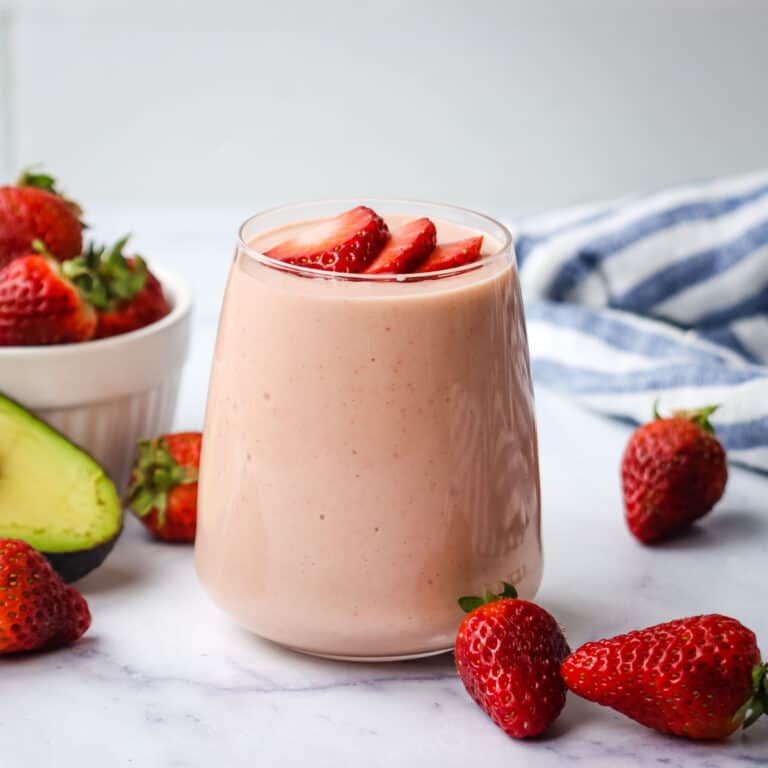

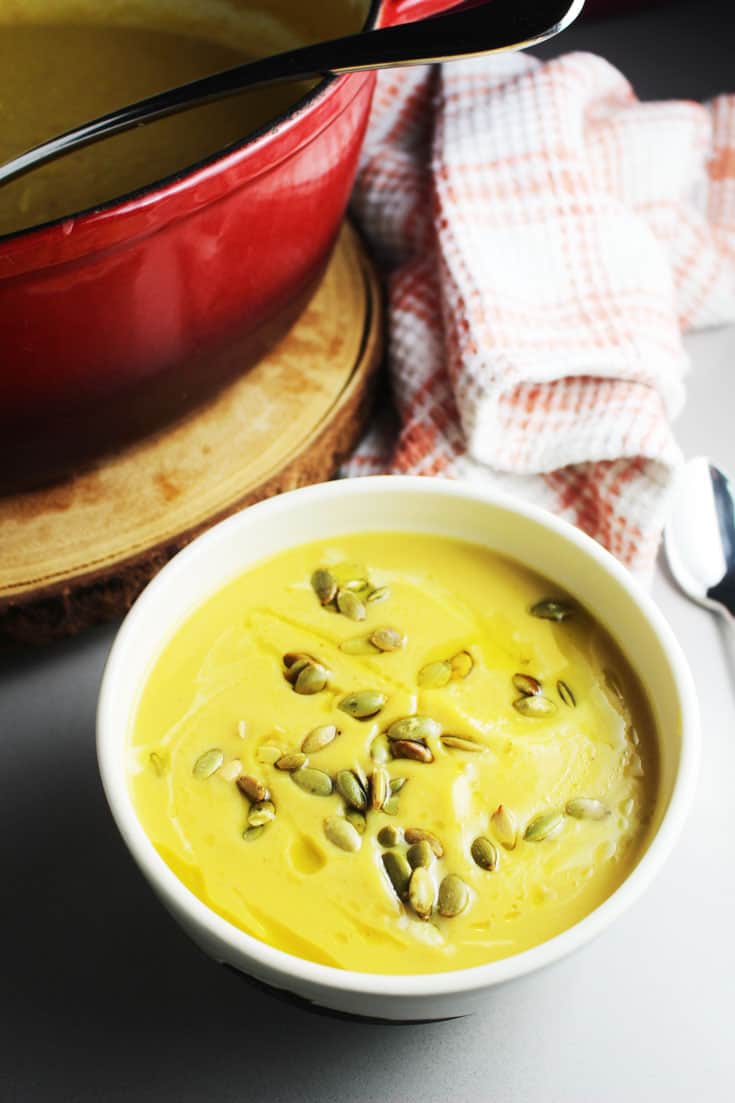
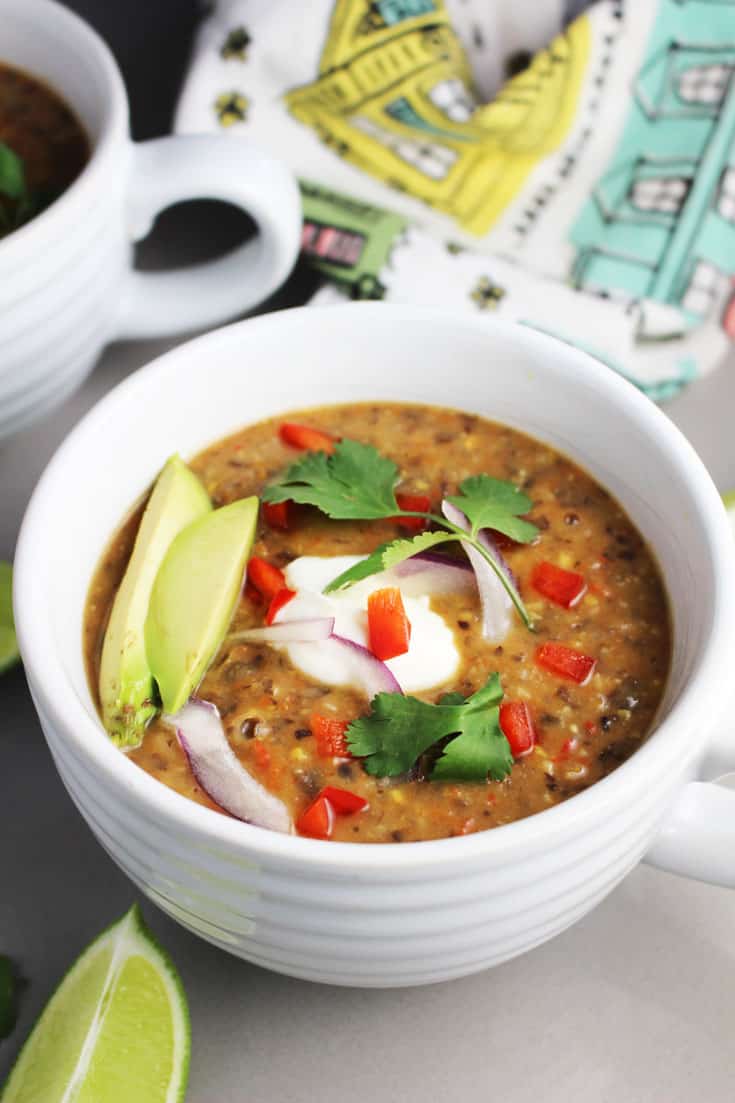
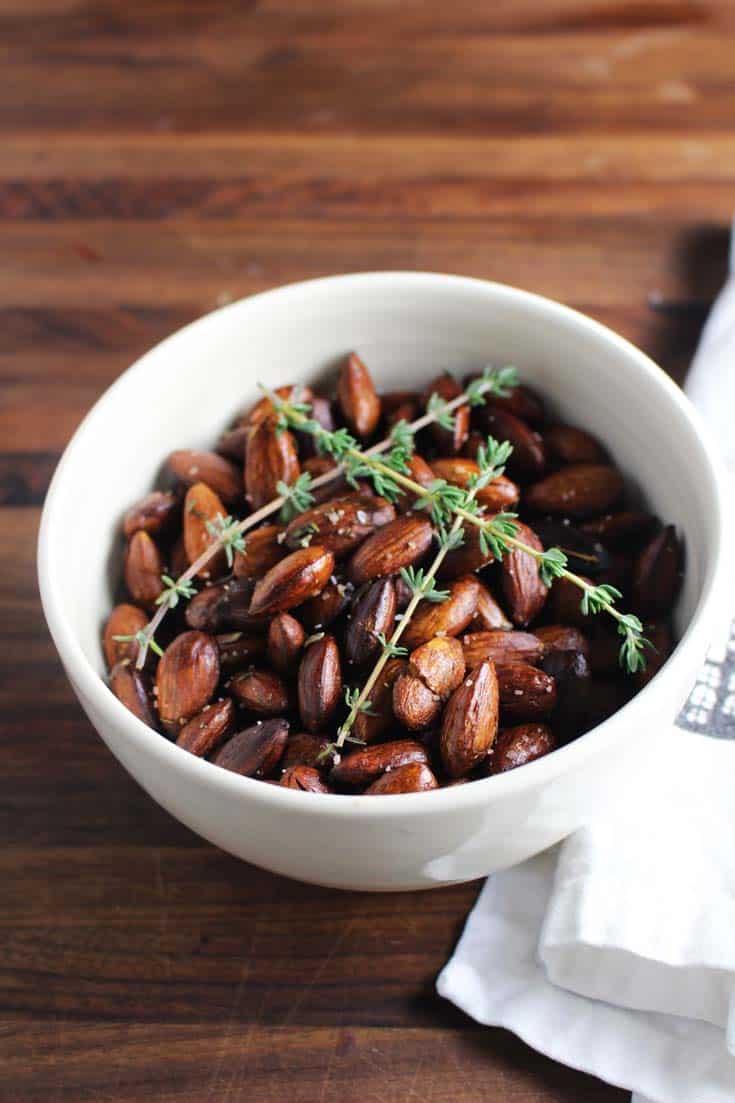
![Easy Thai Sweet Chili Tofu [Vegan]](https://www.ourhappymess.com/wp-content/uploads/2023/12/Sweet-Chili-Tofu-square-featured-768x768.jpg)